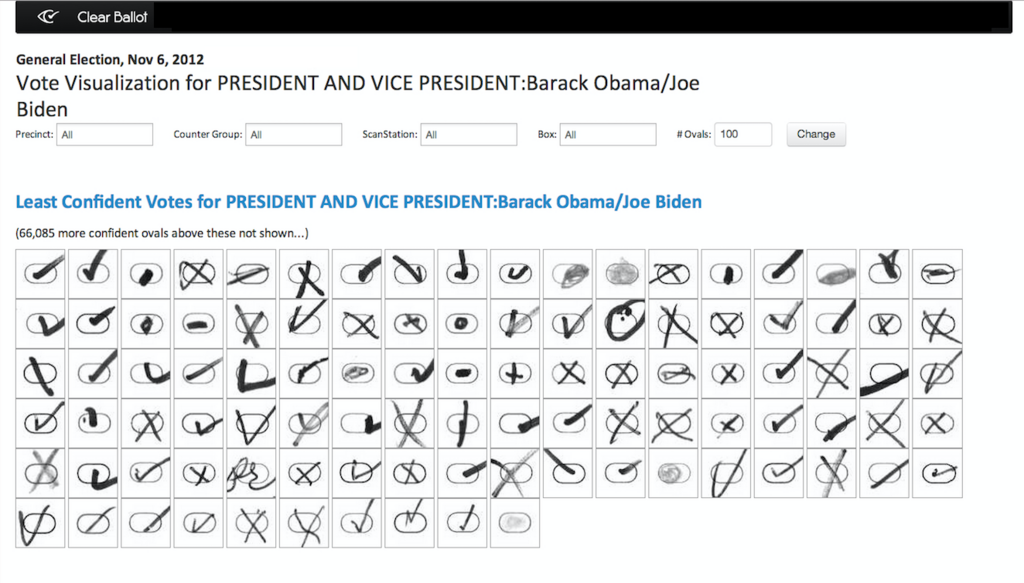From: Bizjournals.com
The outcome of the 2016 election will probably affect every business in the country in some way, but for Boston startup Clear Ballot the vote itself represents a launchpad for big growth in 2017 and beyond.
Clear Ballot is trying to break into the voting machine market in the U.S., which is currently dominated by a handful of providers with notoriously outdated systems. In 2016, Clear Ballot will be the primary voting system in 57 percent of precincts in Oregon, said Chief Operating Officer Jordan Esten, and will provide vote-counting audits for the entire state of Maryland and several counties in Florida.
Esten said if the Clear Ballot system performs well in those testing grounds, it will provide the foundation of trust necessary to expand into dozens more states in the coming years.
“This is an industry where people talk to each other,” Esten told the Business Journal. “If big counties in Florida have a great experience, that is a tremendous boost in what comes in 2017.”
Clear Ballot hopes to improve on both the hardware and software of existing systems that scan and count paper ballots. First, the Clear Ballot machine itself is cobbled together from off-the-shelf equipment, like an Intel processor, which makes the machines easier to update and keeps election officials from scrambling to find limited replacement parts when proprietary equipment breaks.
Clear Ballot’s software aims to prevent the kind of uncertainty in ballot counting that clouded the 2000 presidential election in Florida and to provide an independent auditing process that gives confidence to voters worried about hacking or other election tampering. The system creates an image file of every paper ballot and lets election officials quickly call up ballots with questionable markings to verify votes. In its audits in Maryland and Florida, Clear Ballot will be recounting ballots originally counted by its competitors, which should uncover any discrepancies brought about by hacked systems or other tampering.
Esten didn’t have specifics on the full size of the market Clear Ballot is targeting, but when Congress passed the Help America Vote Act in 2002 — the last time there was a concerted effort to update voting systems — the federal government provided states about $2 billion to buy new equipment. In a 2015 report, the Brennan Center for Justice estimated it would cost $1 billion just to buy replacements for all the current machines that should be updated. Clear Ballot also charges precincts maintenance and service fees after they’ve purchased new machines.
The contract to audit every ballot in Maryland cost the state $275,000, but Esten said that agreement involves only Clear Ballot’s software, with no hardware purchases. Clear Ballot declined to share revenue numbers. Esten said a “strong Boston-based community of investors” has supported the company through three rounds of funding since 2012, but did not disclose the size of the investments.
Clear Ballot’s next step after the 2016 election is to have its machines certified for use in more states and at the federal level, which will give access to several dozen more states that require voting systems to meet federal standards. Esten said he hopes to complete that process by mind-2017.
‘”By 2020 we should be in the vast majority of states as the primary voting system,” he said.
Clear Ballot currently employs about 40 people nationwide, Esten said. Half of those are in the Boston office, which is focused on development and engineering work. Esten said he expects hiring to increase in 2017 as the company penetrates more markets.








Leave a Reply
You must be logged in to post a comment.